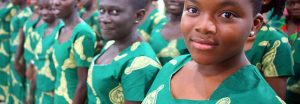Archive: Youth Policy Toolkit
Archive:
Youth Policy Toolkit
You have reached this page either from the main Toolkits Archive page or because you followed a link to a page or resource that used to be in a K4Health Toolkit. The Toolkits platform has been retired.

This Toolkit contained full-text policies addressing adolescent and youth sexual and reproductive health and rights (AYSRHR) from countries across the world, as well as policymaking resources including case studies, expert interviews, key publications and tools, and helpful links.
Toolkit Alternatives
- Explore 20 Essential Resources for Family Planning Policy Environments
- Peruse other Knowledge SUCCESS content on youth policy
- Visit youthpolicy.org’s collection of national youth policies listed by country
- View/download the High Impact Practices brief Comprehensive Policy Processes: The agreements that outline health goals and the actions to realize them
- Search FP insight, including this collection on The need for a rights based approach for designing youth centric SRH policies and programmes
- Visit past captures of the Youth Policy Toolkit on the Internet Archive’s Wayback Machine
If you urgently require a specific resource from a retired Toolkit, contact toolkits-archive@knowledgesuccess.org.





